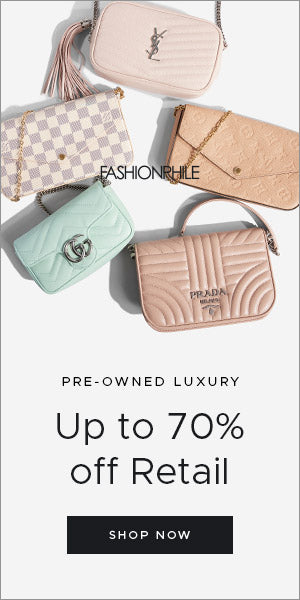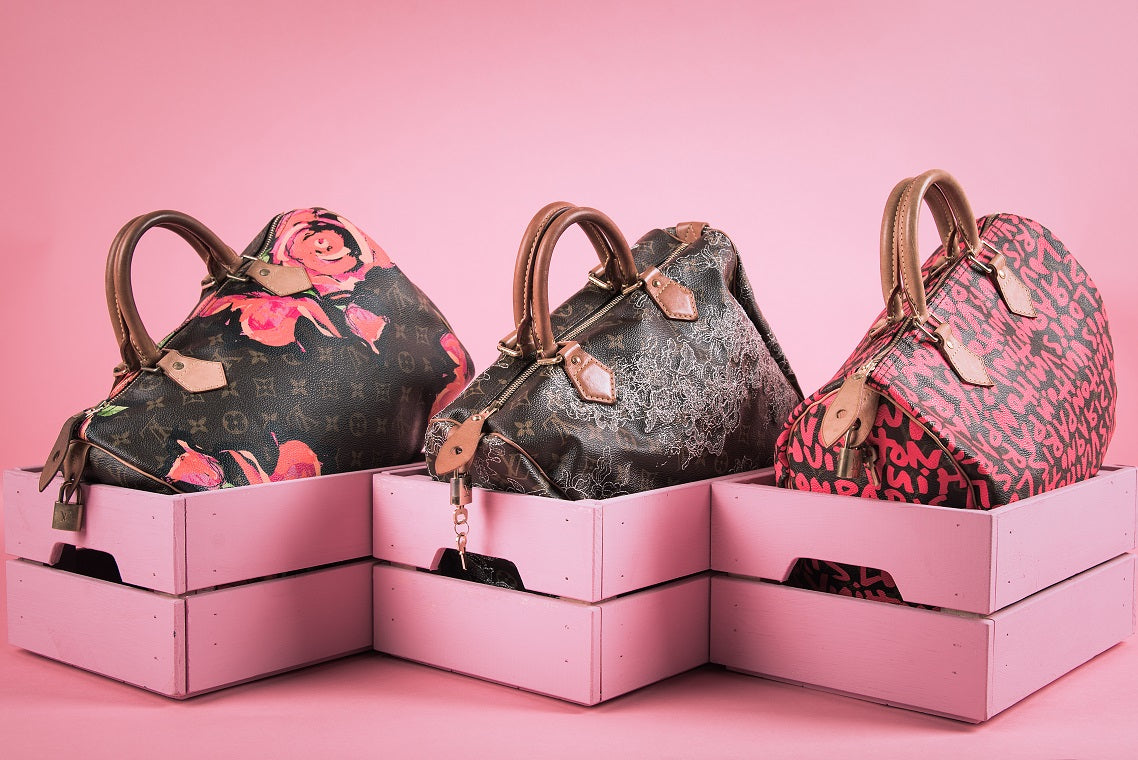
The COVID-19 crisis spared no one last year: it didn’t make any difference between royal family members and ordinary people, it spread across the globe, and had a great impact on every country reaching even the most remote corners of the planet. It turned out that even people and industries who seem to have immunity against any troubles got hit hard by the crisis as well. In this article, we are going to discuss how COVID-19 affected the luxury market.
Which brands showed better resilience and what customers’ shopping preferences were during the pandemic? Has the global crisis ruined people's desire to buy luxury items? We’ll take a closer look at retail and resale markets to answer these questions. Having studied press releases and official reports, we will let you know about buyers' latest trends and habits.
Let’s get started!
How COVID-19 Affected Luxury Retail Market

Like for every other business in the world, the global pandemic became a mortal blow for the luxury industry. And it’s not about closing shops and boutiques for several months. COVID-19 changed the entire philosophy of retail shopping and served as a good lesson for many brands.
If we look back at the measures that have been taken to prevent the spread of the virus, we can state that the luxury market almost stopped working:
- factories were temporarily shut down;
- designers had no source of inspiration being locked at home;
- runway shows and projects were canceled across the world;
- products manufacturing decreased;
- offline shops and boutiques closed their doors.
Surprisingly, many brands were able to unveil numerous innovations, helping them to get in touch with customers. Fashion didn’t take a pause or disappeared but found another way to prove its importance to the public. For example, Louis Vuitton mobilized a number of its workshops in France to make masks and gowns for healthcare workers. The employees of Dior fashion house, which also belongs to the LVMH Group, volunteered to use some of the Italian workshops to produce protection for medical staff as well. Meanwhile, the work on new models was still in process, and clients continued showing interest in luxury items.
Why did it happen?
First, it’s a general high demand that cannot be shaken by anything. Fashion houses have been working for several decades to create a name and a good reputation, and it seems impossible to take them away fast.
Second, luxury goods are produced in less quantity than so-called fast fashion items, but the number of clients is growing each year. Plus, there’s a growing global tendency to buy clothes and accessories that can last for decades.
Third, it’s the desire to make a good investment. We, at Bagaholic, have covered this topic multiple times. If you still belong to those who don’t believe that luxury goods are the best way to invest your money, be sure to read Why You Should Invest in Louis Vuitton Neverfull MM Right Now.

However, numbers speak better than words. In order to find out how COVID-19 affected the luxury market, we have studied the official financial reports issued by each brand. In general, we can state that the revenue has come down by 15-20% if compared to 2019. Here are the key financial statistics:
- the LVMH Group in the sales of fashion and leather goods went down by 5% only (the total income went down by 17%);
- Hermes, down by 15%.
Below are the key financial statistics of the Kering Group (by brand):
- Gucci, down by 22.7%;
- YSL, down by 14.9%;
- Bottega Veneta, up by 3.9%.
Chanel didn’t publish the report yet, but in the middle of 2020, Philippe Blondiaux, Global Chief Financial Officer (according to the Chanel financial report for 2019), commented: “While near-term conditions will remain difficult, we are confident that the passion and expertise of our teams, our record of innovation, and our strong financial fundamentals leave us well-placed”.
As we can see, the brand’s name can be a life vest during the global crisis. While multiple less famous shops and manufacturers closed forever, plenty of fashion houses managed to win the battle with the pandemic with minimal losses. Moreover, most of the brands, despite the predictions that consumers will be less interested in shopping, increased their prices in the middle of COVID-19. You can read more about that in our article Louis Vuitton Increases Price in US in May Despite Pandemic.
How COVID-19 Affected Luxury Shopping Experience

Fashion houses were doing everything possible to stay afloat during the ongoing pandemic – launching marketing campaigns, releasing new models and goods, staying in touch with their clientele, and keeping production of high-quality and beautiful clothes and accessories. However, the main part of this buy-sell chain is still a customer.
As you might know, if you have ever entered any luxury boutique, the shopping experience is exceptional. Each client is assigned a personal sales assistant, who is ready to answer all the questions and give a full tour of the store. Visiting luxury boutiques is a great pastime by itself. Yet, it has remarkably changed due to the pandemic. In order to find out how COVID-19 affected the luxury market and customer’s experience, we have followed the story of Alejandra Machin, who was lucky enough to travel to Paris between two waves of COVID-19 and do window-shopping in the best stores in the heart of French capital.
Here’s how she described her experience in Dior, Hermes, LV, and Chanel boutiques:
- Mandatory masks inside the stores;
- Hand sanitizers at the entrance;
- Staff paying more attention to cleaning the surfaces and baskets;
- Limited amount of customers allowed in the store;
- Sales assistants eager to chat out of boredom;
- Boutiques close earlier (due to curfew in the country).
The vibes of her article are quite sad and have nothing in common with the usual thrill we feel when stepping inside a world-class boutique. Moreover, sales assistants Alejandra talked to said that fewer and fewer people were coming to the stores. One of the reasons for that is the modern love of online shopping, which gave a huge boost to thousands of digital marketplaces.
How COVID-19 Affected Luxury Resale Market

Not only the pandemic had an impact on the market, the global trends also influenced customers' choices and preferences. With the growing love for sustainability and eco-habits, we are witnessing the gradual decline of the fast fashion era. People are getting used to purchasing second-hand clothes and accessories, especially of high-quality brands, and resell their own old goods for the same reason.
It would be unreasonable to boldly state that the resale market was thriving during the last year. After all, millions of people lost their jobs and didn't think about renewing their wardrobes (considering they were forced to stay at homes). However, when studying the financial reports of the main resale platforms we can find out how COVID-19 affected the luxury market.
The results are actually impressive: despite the decline at the beginning of the pandemic, the resale market recovered fast. This success is easy to explain:
- Customers look for cheaper options, but still want to purchase luxury brands;
- Buying via large resale platforms is safe when directly from the owner (however, be extremely careful as You Can Still Buy a Fake Bag From A Reputable Consignment Store);
- Online shopping and worldwide shipping are very convenient;
- More items are listed on the platforms, due to people sending their old stuff to resellers and department stores signing partnerships with them.
ThredUp CEO James Reinhart comments: “People will always want to buy new stuff. What’s really changing [is] the line between it's brand-new versus it’s new to me”. His company maintained 20% growth since the post-COVID era (in March-May 2020).
According to the quarterly reports of another resale giant TheRealReal, the company was able to show an annual growth of 6%, despite the tremendous losses at the beginning of the pandemic. Here’s a full chart of TheRealReal results per quarters:
- Q1 – total revenue increased by 11%;
- Q2 – total revenue decreased by 21%;
- Q3 – total revenue improved by 16%;
- Q4 – return to growth by 6% compared to the previous year.
The potential thriving of the luxury resale market is proved by the interest of investors. For example, Rebag was able to raise US$15 million in the latest Series D round of funding. Another luxury resale platform Vestiaire Collective has raised US$216 million. By the way, its transaction volume doubled during the pandemic, if compared to the pre-COVID year. Each week about 140,000 new listings appear on the website. In the financial release, it’s stated that local sellers in the US and Asia increased their items sold by more than 250% year-over-year in 2020.
As we might see from the official statistics, the luxury market has also suffered from the global pandemic. However, the previous year has taught us an important fashion lesson: the future belongs to high-quality goods and sustainable shopping.
However, if you would like to switch to shopping pre-owned, always authenticate items prior to purchase. We, at Bagaholic, can help you with that.
If you need to authenticate a Louis Vuitton/Dior/Gucci item, please order one of the three types of authentication:
- good when you need a certificate for any reason,
Certificate of Authenticity $25
- good when you need a certificate for any reason, either to sell the bag with the peace of mind or to return a fake bag to the seller if you purchased a fake
- includes a permanent certificate on lvbagaholic.com
Certificate of Authenticity with a thorough explanation $50
- good when you need a certificate and you need to know why the bag is authentic/not authentic for any reason, either to sell the bag with the peace of mind or return a fake bag to the seller if you purchased a fake.
- includes a permanent certificate on lvbagaholic.com
- includes an explanation of why the item is fake (detailed pictures and comparisons with an authentic bag, more than 10 pics included)
PLEASE CHOOSE ONE OF THE OPTIONS BELOW






